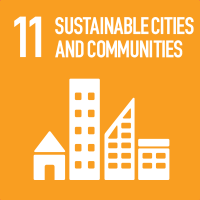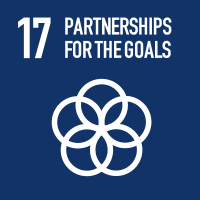Studying at the University of Verona
Here you can find information on the organisational aspects of the Programme, lecture timetables, learning activities and useful contact details for your time at the University, from enrolment to graduation.
Type D and Type F activities
| years | Modules | TAF | Teacher |
|---|---|---|---|
| 1° 2° | “Crisis of Democracy? Dialogues on the world to come” (second edition). Cycle of public lectures | F |
Giovanni Bernardini
(Coordinator)
|
| 1° 2° | Gino Tellini (emeritus, University of Florence): A recent edition of all the short stories by Aldo Palazzeschi | F |
Fabio Danelon
(Coordinator)
|
| 1° 2° | Study seminar (PRIN 2022) "Carte Tommaseo on-line" | F |
Fabio Danelon
(Coordinator)
|
| years | Modules | TAF | Teacher |
|---|---|---|---|
| 1° 2° | “Crisis of Democracy? Dialogues on the world to come” (second edition). Cycle of public lectures | F |
Giovanni Bernardini
(Coordinator)
|
| 1° 2° | Molestie sessuali in ambito universitario. Un approccio multidisciplinare e intersezionale alla prevenzione | D |
Stefano Porru
|
| years | Modules | TAF | Teacher |
|---|---|---|---|
| 1° 2° | Tourism laboratory - Data collection | F |
Emanuela Bullado
(Coordinator)
|
| 1° 2° | Tourism laboratory - Reporting | F |
Emanuela Bullado
(Coordinator)
|
| 1° 2° | Mapping GIS | F |
Fabio Saggioro
(Coordinator)
|
| 1° 2° | Workshop on the eighteenth and the landascape of Valpolicella | F |
Fabio Saggioro
(Coordinator)
|
| 1° 2° | The Orbetto before Rome | F |
Giorgio Fossaluzza
(Coordinator)
|
| 1° 2° | Pillole di sostenibilità | F |
Matteo Nicolini
(Coordinator)
|
| 1° 2° | Tourism laboratory - GIS mapping | F |
Emanuela Bullado
(Coordinator)
|
| years | Modules | TAF | Teacher |
|---|---|---|---|
| 1° 2° | Tourism laboratory - Data collection | F |
Emanuela Bullado
(Coordinator)
|
| 1° 2° | Tourism laboratory - Reporting | F |
Emanuela Bullado
(Coordinator)
|
| 1° 2° | Mapping GIS | F |
Fabio Saggioro
(Coordinator)
|
| 1° 2° | Workshop on the eighteenth and the landascape of Valpolicella | F |
Fabio Saggioro
(Coordinator)
|
| 1° 2° | The Orbetto before Rome | F |
Giorgio Fossaluzza
(Coordinator)
|
| 1° 2° | Pillole di sostenibilità | F |
Matteo Nicolini
(Coordinator)
|
| 1° 2° | Tourism laboratory - GIS mapping | F |
Emanuela Bullado
(Coordinator)
|
| years | Modules | TAF | Teacher |
|---|---|---|---|
| 1° 2° | Attendance at the final meeting of the FSE VeneToAll project - Implementation of a digital supply chain for the multimedia promotion of the Veneto cultural heritage | F |
Paolo Pellegrini
(Coordinator)
|
Territorial Development and New Tourism typologies (2024/2025)
Teaching code
4S012459
Academic staff
Coordinator
Credits
6
Language
Italian
Scientific Disciplinary Sector (SSD)
M-GGR/02 - ECONOMIC AND POLITICAL GEOGRAPHY
Period
CuCi 1 A, CuCi 1 B
Courses Single
Not Authorized
Learning objectives
The aim is to introduce students to the tourism phenomenon, analyzing it in its various aspects. The analysis starts from a framework of the discipline from a general and definitional point of view, and then proceeds in more specifically territorial terms. Spatial models, urban development dynamics, regionalization are some of the most significant aspects.
The measurement of flows linked to tourist supply and demand is preparatory to build up an organic interpretation of the phenomenon.
An important part of the course will be dedicated to the study of new tourisms, with specific orientation to the state of the art in Italy.
At the end of the course the student must have acquired the skills to:
- understand and analyze the geographical - tourist characteristics of the different territorial contexts;
- outline possible operational scenarios.
Prerequisites and basic notions
Knowledge of the basic notions of economic geography and tourism geography. Some fundamental concepts will be reviewed during the course.
Program
The course aims to identify and explain the main characteristics of tourism in relation to population flows and the territory involved. In particular, it will deal with the socio-economic changes linked to tourism demand, and importance will be given to the tourism-culture relationship and the dynamics expressed. Finally, the sector of new tourism will be explored in depth, both as new forms and as a new way of enjoying traditional forms. At the end of the course, the student must have acquired the skills to understand and analyze the geographical-tourist characteristics of the different territorial contexts in order to be able to outline possible operational scenarios.
Bibliography
Didactic methods
Frontal lessons with the use of synthetic support material (slides). Presentation of case studies. The teaching material presented during the lessons will be made available on the e-learning platform in conjunction with the development of the topics covered.
Learning assessment procedures
The exam includes a written test, consisting of questions related to the topics contained in the program. Each answer is associated with a score expressed in 30ths. The written test is aimed at ascertaining knowledge of the topics in the program. In addition to the contents of the course, clarity of exposition, mastery of geographical vocabulary and correct spelling and syntax will also be evaluated.
Evaluation criteria
Ability to organize knowledge of the discipline and competence in the use of specific vocabulary
Criteria for the composition of the final grade
.
Exam language
ITALIANO



